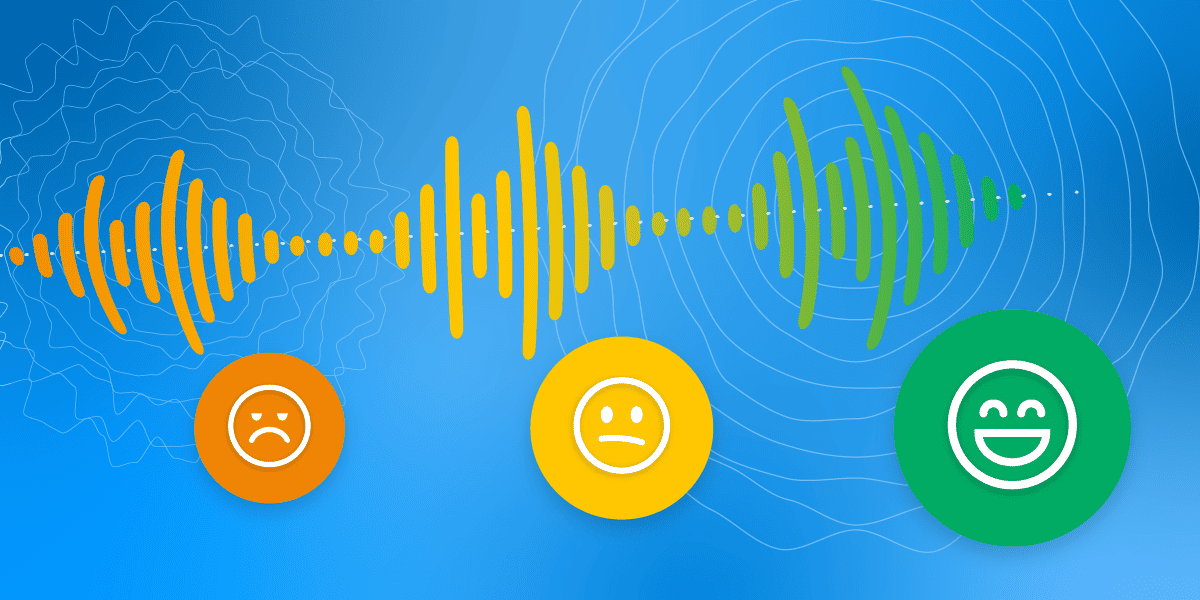How Does Voice Affect Your Customer Satisfaction?

When you’re in charge of the customer experience strategy, handling complaints, and training customer service teams, you probably rely on a robust contact center tech stack to increase customer satisfaction metrics.
The conversations between your agents and customers are a very important factor in your performance scores. With voice service facilitating those conversations, it isn’t something to overlook.
Voice is still a leading communications channel even in the digital age. By prioritizing cloud voice service for contact centers, you can foster stronger customer relationships and drive long-term loyalty. Read on to find out how!
How Voice Service Affects Customer Satisfaction Metrics
High call quality and voice delivery play a significant role in shaping crucial customer satisfaction metrics. Here’s how:
1. Customer Satisfaction (CSAT)
Customer satisfaction indicates the level of satisfaction a customer feels after interacting with your business. If your customers are dealing with static or distorted audio on their calls, they’ll likely leave the conversation frustrated and unfulfilled– resulting in less-than-desired CSAT evaluations on your agent scorecards.
2. Net Promoter Score (NPS)
The NPS of your business is determined through call quality assurance surveys that ask customers a single question about how likely they are to recommend your products or services.
Negative experiences, especially related to poor call quality or long wait times with no resolutions, erode trust and loyalty which in turn, makes customers less likely to advocate for your business.
3. Customer Effort Score (CES)
The CES metric measures the ease or difficulty a customer encounters when interacting with your customer service team, or more specifically, a product or service you offer. It focuses on the level of effort required to complete a task, resolve an issue, or achieve the desired outcome.
If customers encounter a complex IVR menu or loop, it creates additional frustration and effort in finding an agent to contact. This can lead to higher CES scores, reflecting customer dissatisfaction with the overall experience of your business.
4. Churn
Also known as customer turnover, churn refers to the rate at which customers discontinue their relationship with your company or services.
Repeated problems in call quality, long wait times, unresolved issues, and confusing IVR routing contribute to recurring customer dissatisfaction who may ultimately leave and seek alternative solutions.
The Benefits of Voice Contact Center Software for Your Customer Service Goals
Reliable, high-quality voice contact center software is paramount in achieving your customer service goals. Here’s how you can benefit from it:
1. Phone Numbers
Making it easy for customers to reach your customer service teams is a surefire way to improve your performance. With comprehensive number types and global coverage, your customers can easily reach your contact center from just about anywhere in the world.
Take a look at these phone numbers that can help your customers near and far:
- 0800 or 1800 numbers that are easily recognizable and free to call.
- Route calls directly to specific agents using local phone numbers.
- Follow back up on calls with outbound-capable phone numbers.
2. Faster Speed of Service
90% of customers want an immediate response to their customer service questions. The speed of service you provide is critical to keeping your customers happy. Features of cloud voice can deliver in a number of ways:
Advanced Call Routing
Advanced call routing ensures that incoming calls through your IVR reach the intended destination. You can reduce caller frustration by building and managing your contact center’s call flow using custom menu options, personalized greetings, and percentage-based and skills-based routing.
Queue Callback
Another valuable feature is Queue Callback, which allows callers to choose a callback from an agent rather than wait on hold in the queue. This feature gives those customers who have opted in time back in their day, which can improve their experience.
Call Coaching
Lastly, cloud voice services offer Call Coaching Tools to empower managers to participate in customer conversations. These tools, including monitor, whisper, and barge, provide a training mechanism that ensures feedback and intervention are deployed when necessary to keep conversations on track and maintain quality standards.
3. Call Security
Enhanced call security is a standard of cloud voice that protects customer conversations and data. Voice calls are encrypted to safeguard your calls from interception. Data compliance is also prioritized for recorded calls. With industry regulations like GDPR and POPIA, your customers’ data is preserved and well protected from breaches.
4. Analytics
Cloud voice services offer powerful analytics into your contact center operations. These insights provide an in-depth understanding of your teams and agents, but also detailed reports of how your callers got to their destinations and the quality of the audio received.
Were there sticking points in the IVR? What do the call details show in the journey? All this and more can be drilled down in your reports, where you can share and optimize processes to enhance your customer satisfaction metrics.
Step Up Your Customer Satisfaction Scores
When you need to step up your customer satisfaction scores, a reliable cloud voice service provider can help. From better voice quality to seamless integrations to number inventory and feature accessibility– all these voice features can greatly influence the customer experience.
While voice may be a channel within your unified communications, it’s the channel your customers seek for urgent matters. Don’t leave your voice services up to chance– refocus the customer experience with reliable voice contact center software and improve customer satisfaction today with the AVOXI Platform.
